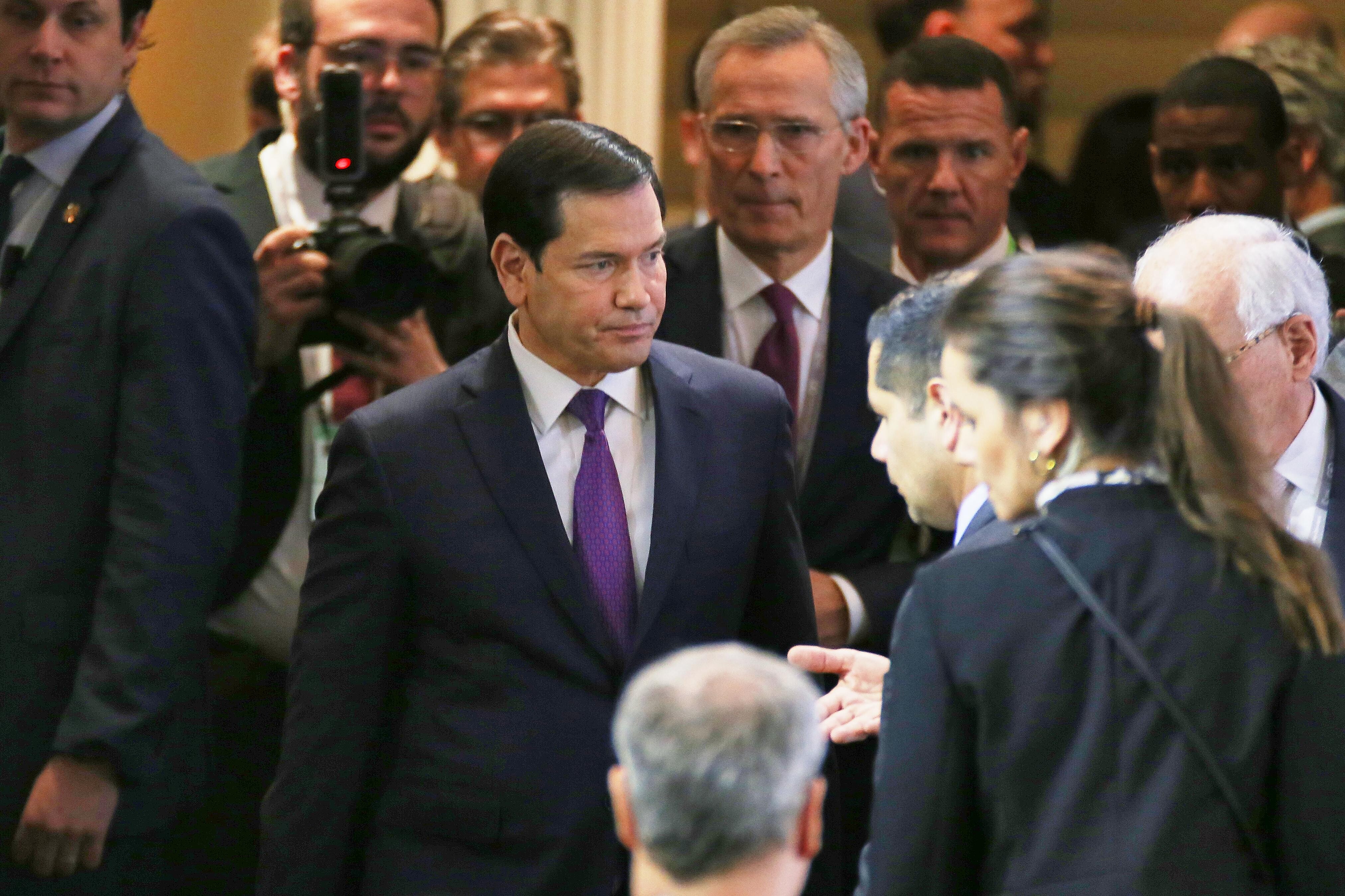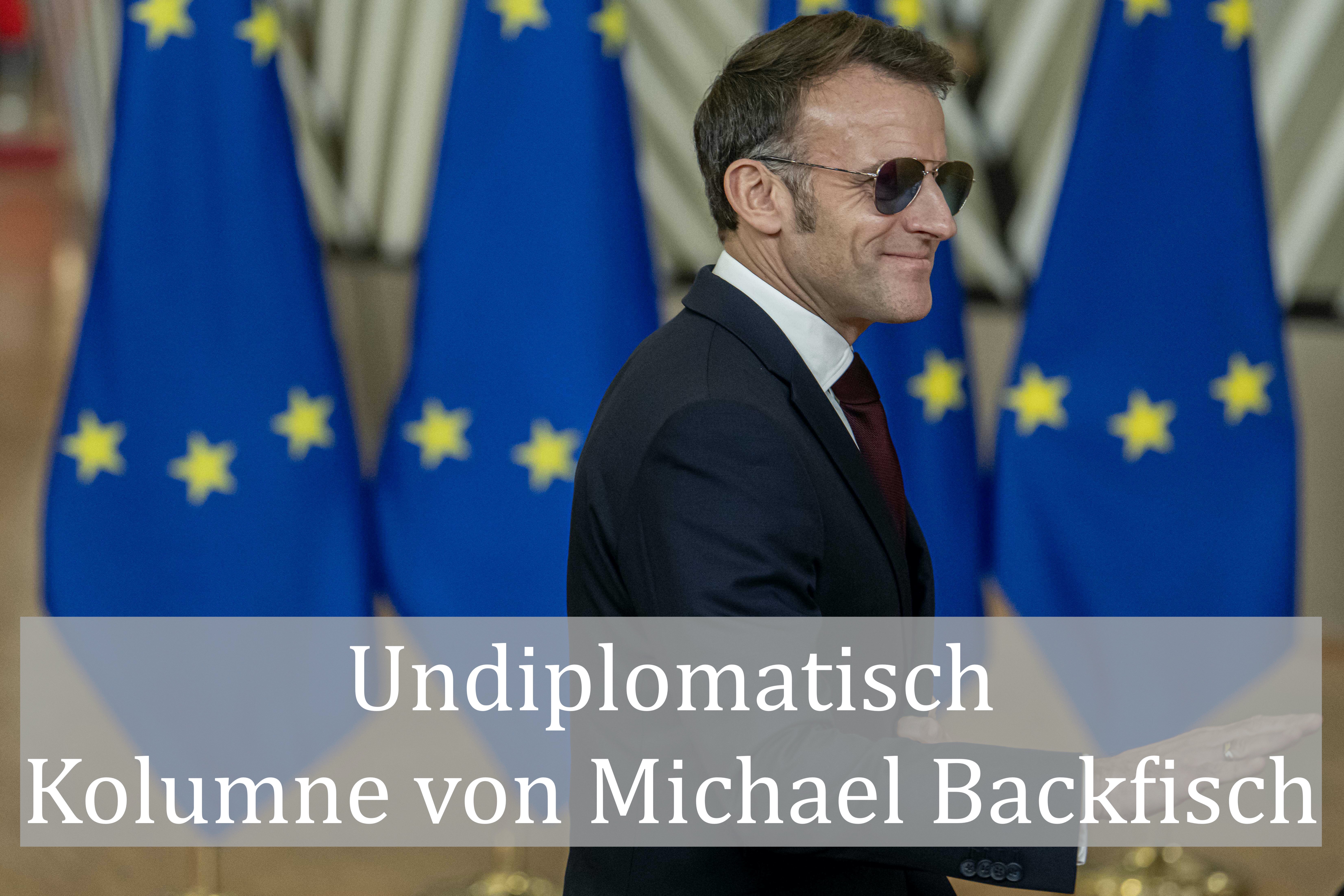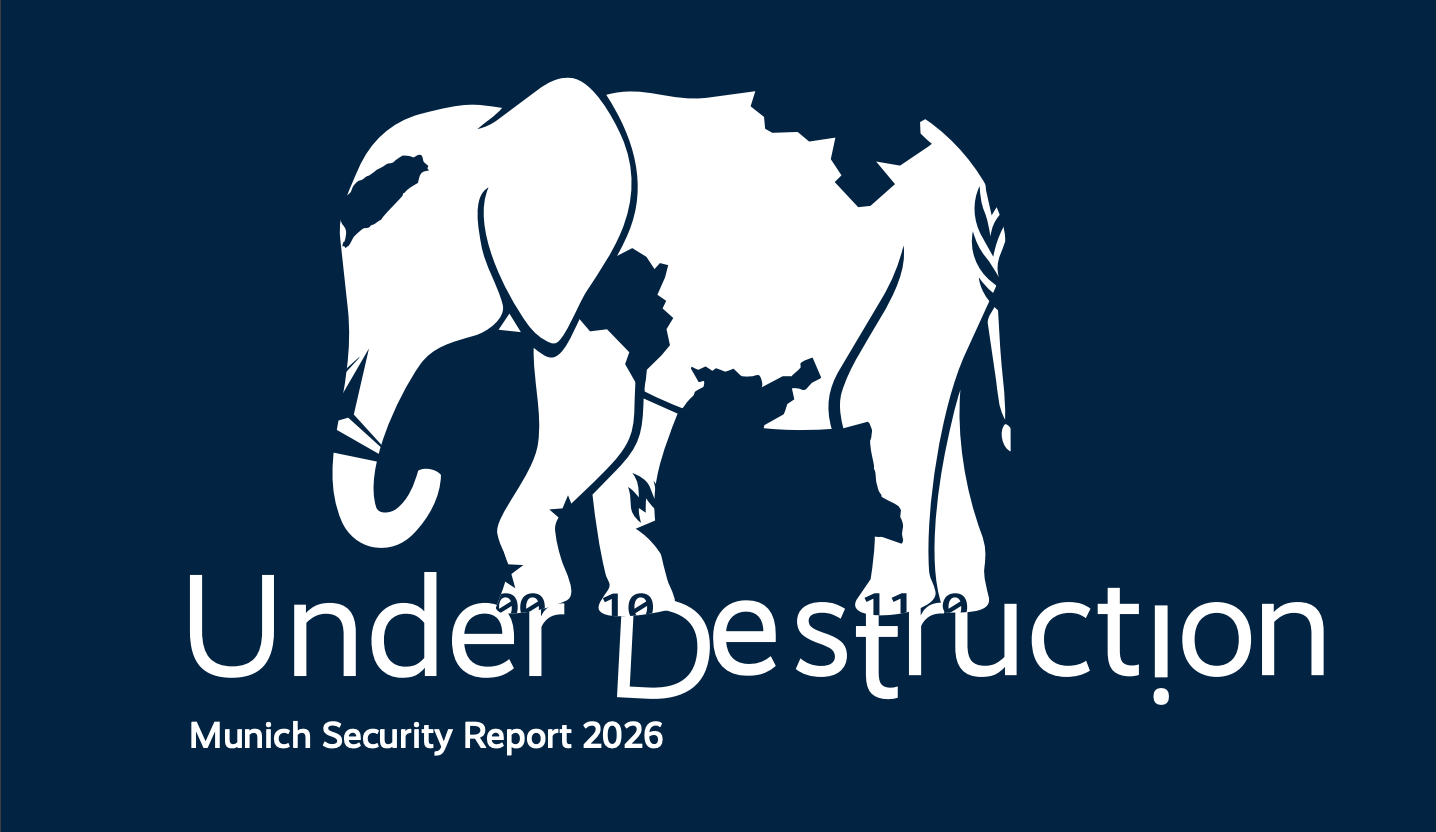diplo.news
“The time would be right for a comprehensive reorganization of the Middle East.”
Interview by Gudrun Dometeit

What are the domestic political consequences of the twelve-day war between Israel and Iran on the Iranian regime? According to Israel's Prime Minister Benjamin Netanyahu and in the words of US President Donald Trump, in addition to the destruction of nuclear facilities, regime change was one of the reasons for the attack.
The domestic political consequences will, I fear, remain relatively low. Supreme Leader Khamenei is still in office, and even if he should be killed, the regime is still stable, according to the previous impression. There is no sign of an uproar from within. On the contrary, one gets the impression that, despite all criticism of the regime, the Iranians reject the attacks by Israel and the USA because they fear chaos and reject this type of violence. Regime change or just destabilization does not appear to have taken place.
In your opinion, what was the actual target of the attacks?
First and foremost, it was certainly a strike against the nuclear sites. However, the name of the Israeli action ‘Rising Lion’ suggests that Netanyahu was aiming for a possible regime change, as the term alludes to a symbol of the ancient Persian Empire. In addition, not only nuclear installations were attacked, but also state television, energy plants and other more civilian institutions. It is difficult to say whether this was also Trump's idea. But it's not over yet. I do not rule out that at least Israel will try to kill Ayatollah Khamenei or take other destabilizing measures in the hope that the regime will fall.
However, such attempts in other countries have rarely proved successful in the past. Why should it be any different now?
I believe that attempts to bring about a change of regime externally are highly dangerous, and also not very promising in Iran. In Iraq - and in Afghanistan - the attempt failed resoundingly. In Syria, the change came primarily from within. And this is the only way that would be realistic in Iran, otherwise we risk chaos and a major destabilization of the region. The probability that the alternative to the current regime would become even more repressive is much greater than that there will be a democratic government.
Despite the bombing, Iran continues to signal a willingness to negotiate. The retaliation against US troops in Qatar came with advance warning and apparently caused barely any damage. Does Iran actually still want to negotiate, or must we expect massive backlashes in the near future?
The willingness to negotiate has certainly been significantly reduced. From an Iranian perspective, negotiations with the Europeans as well as with the Americans have been compromised. If you suddenly carry out military strikes during an ongoing round of negotiations, the other side naturally asks itself what such talks are supposed to achieve in the first place. Iranians are also seeing what else is happening in the region. Israel terminated the agreement with Hamas on a three-stage ceasefire in Gaza after the first stage and has not implemented the agreements with Lebanon to withdraw from the south of the country. Trump has agreed to the agreement, but both have basically been broken. The Iranians are therefore wondering whether the Americans will then comply with the results of negotiations with Iran. After all, they also withdrew from the functioning agreement on the Iranian nuclear program (JCPOA) in 2018. According to the then-head of the International Atomic Energy Agency (IAEA), Iran was the most closely monitored member of the Nuclear Non-Proliferation Treaty.
Iran has just suspended cooperation with the IAEA and has not — as North Korea did in 2003 — declare its withdrawal from the Nuclear Non-Proliferation Treaty. Does this suggest that there are still opportunities for negotiation? Even if not with the Europeans, because they obviously have no influence.
It was actually clear that the Geneva talks between Germany, France and the UK with Iran (on 20 June, ed.) would not lead to a reliable result. However, the three have made an absolutely important attempt to get back into a negotiation process for the first time. It wasn't successful, but you have to try it. The suspension of the agreement with the IAEA is a bad sign. If viewed optimistically, the last step towards leaving could be interpreted as a last attempt not to completely rule out negotiations. The future will show whether this interpretation is correct. Iran is not interested in further military conflict with the Americans. This has been the case since Hamas' attack on Israel in October 2023. Tehran may have financially supported and strengthened Hamas, as did Hezbollah, but the regime did not approve their attacks on Israel and wanted to abolish them for a later date. This shows how dangerous it is to set up proxies when they are playing a different game. It ended disastrously for Iran. It is understandable that the Israelis did not want to play along with this unclear and risky Iranian game. Talks depend on whether their credibility can be restored.
Europe has virtually no influence in the Middle East. Germany supports Israel almost unconditionally — yet it apparently no longer has any influence there either. What is the reason for that?
Europe had moral credibility in the region for a long time. It has diminished considerably among the Arab states. Our arguments are not shared — that is a fact that we must take note of. On the Israeli side, only the Americans count because they are prepared to enforce tougher measures. Trump, too, has been quite critical of Israel in recent months on some issues. The Europeans are not taken seriously as partners by Israel because their arguments are ultimately unconvincing and apparently do not want to enforce coercive measures. This basically rules them out as a serious negotiating partner.
Europeans must decide soon whether to allow sanctions against Iran to reinstate because the deadline set in the JCPOA expires. Is that still a lever to make a difference? What is your recommendation as a former ambassador and expert in the region?
First and foremost, we must define our interests. Are they determined exclusively by the support of the Israeli government, or are there other aspects as well? The lesson from our deployment in Afghanistan was that you have to look closely at the entire circumstances of the region beforehand. We should continue to do so in the current situation. I would analyse very soberly and ask how we can achieve which goals. I currently miss this definition of interests on the German side. It would be an important step to debate this within the German government and certainly also publicly and also controversially.
The new Foreign Minister Johann Wadephul has been criticized for describing the US bombings on Iran as unfortunate. But a new Middle East strategy cannot blindly follow the Americans. The military strike was highly dangerous for further developments in the region.
I would rather focus on our interests. Regime change in Iran could create chaos and thus lead to refugee flows to neighboring countries, including Turkey. Their head of state Recep Tayyip Erdoğan has already stated that he will not stop Iranian refugees heading to Europe. Almost four million refugees once came there from Syria, over a million to Germany — with 20 million inhabitants. However, Iran has 90 million inhabitants. Secondly, our credibility — also because of the consequences of the Second World War and the terrible legacy of the Holocaust — is in striving for a rules-based world order that does not apply the law of the strongest. The Middle East considers the attack on Iran to be clearly contrary to international law because there was no imminent threat, and that is why its conclusion is that a rules-based policy no longer applies, at least not for everyone, but only the law of the strongest. We have always argued this way in Ukraine and therefore classified Russia's war as contrary to international law. We have no interest in abandoning a rules-based foreign policy or in large flows of refugees. That is why I do not recommend relying only on the following of the Americans or the Israeli government.
How serious do they think the impact of the war on the region is? For example, in countries such as Syria or Lebanon, which are themselves struggling for internal stability. How great is the risk of escalation?
Stability in Iraq could break up again because there are many Shiites there and a separate Sunni state is currently being discussed there. The entire order of the region is in danger of being disrupted. Terrorism could also spread again because more and more groups blame Europeans and Americans for this situation. In Lebanon and Syria, on the other hand, the weakening of Iran may lead to stabilization. The past few weeks have shown this. However, it must continue to be actively operated. It doesn't come by itself.
Do recent events involving Iran reinforce ambitions for nuclear weapons, because some countries are saying to themselves: Obviously, only a nuclear bomb will protect us from the next attack by the Americans?
Unfortunately, this is a conclusion that authoritarian states in particular are presumably drawing from this. Iran gave up its official nuclear weapons program in 2003, but continued to campaign for peaceful use. Muammar al-Gaddafi also gave up the nuclear weapons program in Libya in the same year and was killed ten years later by a NATO operation with UN approval. The situation differed under international law, but many are likely to doubt whether the task is the right path. They're looking at North Korea, Pakistan or India, which simply developed the bomb and then said: Well, now we have it. Egypt has tried for years to implement an initiative for a nuclear-weapon-free zone in the Near and Middle East, and has also acceded to the Nuclear Non-Proliferation Treaty in the expectation that Israel will follow suit.
Netanyahu is fighting against Iran, in particular its nuclear weapons, which have been virtually possessed for years. Does not only the security of the country play a role, but also the desire for a kind of nuclear hegemony in the region? There is no other way — apart from a few tactical arguments — to explain why Israel has attacked now, even though there was no sign of an acute threat.
Israel has never officially declared that it has nuclear weapons... There is actually a lot to be said for this motive. The question is whether we Europeans grant Israel an exceptional situation worldwide because it is Israel and is outside the legal system. Or whether Israel does not also have to submit to international law. You can answer that one way or another, but I believe that we must address this issue — also within the framework of our own definition of interests.
Can the US military strike against nuclear facilities actually have a positive effect? Because dismantling what already exists could generate new ideas for the eternal conflicts in the Middle East?
The change in Iranian influence, which the Arab states have also viewed very critically, could be used for a comprehensive reorganization of the Near and Middle East, for example following the example of the Conference on Security and Cooperation in Europe (CSCE). Given the current power structures, the time would be right, but it presupposes that the states have suitable leaders on all sides. That seems unlikely to me at the moment, so I fear that this opportunity will once again not be used to bring about a comprehensive peace, but that we will remain in a military confrontation.
At the suggestion of France and Saudi Arabia, the UN wanted to hold a conference on the two-state solution for Israel and Palestine, but postponed it due to tensions over Iran. Some say that the idea is dead anyway, others want to revive it. What do you think of that?
Israel's ultimate security and right to exist can only be achieved through its legitimacy in the region, through the recognition of the Arab states. Egypt and Jordan have both done this in their respective peace treaties - provided that the Palestinian issue is resolved. As early as 2003, the other states promised Israel's right to exist if the Palestinian issue is settled in the sense of a two-state solution. Bahrain, the United Arab Emirates, Morocco and Sudan recognized Israel in the so-called Abraham Treaties in 2020 - with the perspective that the Palestinian issue will be resolved in some way. This shows that even the ultimate goal of our reason of state — Israel's security and right to exist — is not realistic without an amicable solution to the question of Palestine. However, this must now also be achieved diplomatically, because Israel will not be able to defend its existence only with weapons for the next 500 years. It was precisely the terrible massacre of Hamas in 2023 that prompted the Arab states to actively work to resolve this conflict for the first time.
In foreign policy, Israel has relied more on the strength of its army than on the strength of the word. Could it be that it now feels even more reinforced because the attack on Iran has succeeded? In your opinion, how ready is Israel to negotiate?
I think it is extremely understandable that the country relied on its defense capabilities. But it has also relied on diplomatic means; the peace agreements with Jordan and Egypt are striking examples. After the Oslo Agreement in the 1990s, Israel had its most peaceful period. In fact, even now, there are very good conditions to strengthen peaceful reconciliation with its neighbors Lebanon and Syria. But instead of strengthening the Lebanese government and army, Israel continues to bomb southern Lebanon, giving Hezbollah an excuse not to relinquish its weapons. In Syria, it continues to control areas that it invaded after the fall of the Assad regime and that go beyond the territory conquered in 1967. That is humiliating for Syrians. It would now be an opportunity for Israel not to disarm, of course, but to reach out to neighboring states.
In Germany, there is always talk of Israel's security as a German reason of state. But what does that actually mean? Instead of just following the policies of Israeli governments, shouldn't we focus more on how Israel's security can be protected? The crackdown on the Palestinians in Gaza, for example, sows hatred and breeds the next generation of terrorists.
The term was given meaning many years ago. Security means that there must be no terrorist attacks. The right to exist means that Israel, as a new European arrival in the Middle East, has a new location at the beginning of the 20th century, which the Arab states recognize through exchange of ambassadors, and that its borders are secure, whether that is before the Six-Day War of 1967 or others. That is the basic formula that we should remember more often.




